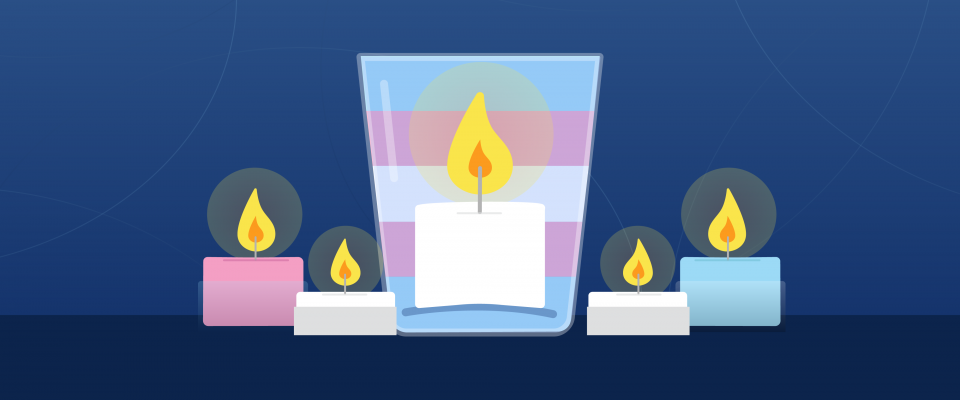Today, we mourn trans, two-spirit, non-binary and gender non-conforming people who have lost their lives to transphobia. November 20th is Trans Day of Remembrance (TDOR) which began in 1999 by trans advocate Gwendolyn Ann Smith as a vigil to honor the memory of Rita Hester, a trans woman who was murdered in 1998. On this day, PSAC mourns the loss of those who were loving partners, parents, family members, friends and community members.
Although there have been many recent gains in trans inclusion in Canada, trans people, especially racialized trans feminine people, continue to be disproportionality affected by gender-based violence. COVID-19 has only exacerbated the discrimination and inequities these individuals face.
COVID-19 & Its Impacts on Trans People
The pandemic has been a challenging time for everyone, but individuals in trans and non-binary communities have faced additional barriers during the spread of COVID-19. Accessing hormones and gender-affirming surgeries has been especially difficult. Since trans and non-binary people are more likely to work precarious jobs, they have also experienced a loss of income and job security.
A survey conducted prior to COVID-19 indicated that 12% of respondents avoided going to the emergency room because they were trans or non-binary. Discrimination and these pre-existing health barriers have been heightened due to COVID-19.
Trans and non-binary people have also faced an increase in the impacts of domestic violence in their homes in times of isolation. Furthermore, social distancing measures have had a detrimental impact on the mental health of many.
Racialized Trans & Non-Binary People
Reports show that racialized trans and non-binary people in Canada experience additional challenges and discrimination. In 2019, Trans Pulse Canada conducted a survey with 2873 trans and non-binary people across the country. Racialized respondents reported higher levels of discrimination, violence and assault than their non-racialized counterparts. 73% of respondents expressed fear towards police and expected unfair treatment by the legal system. Nearly 3 in 4 respondents reported being verbally harassed within the last 5 years.
Many Black trans people report feeling disproportionately targeted and harassed by police. The recent death of Coco, a 30-year-old Black trans woman living in Toronto, while she was in the custody of the Toronto Police Services, is another stark reminder of the dangers racialized trans women face regularly.
What can you do commemorate TDOR?
You can participate in TDOR by attending and/or organizing a vigil on November 20th to honor trans and gender non-conforming people whose lives were lost due to transphobia. We encourage you to participate in a digital vigil taking place online. If you are attending a vigil in person, we remind all members to take appropriate COVID-19 safety precautions (wear a mask, physical distancing, wash hands, etc.)
You can also encourage your Member of Parliament to pass the Conversion Therapy Bill (Bill C-6) once and for all. Conversion therapy is the damaging practice of denying LGBTQ2+ people their dignity and trying to coerce individuals to change their identity. It hurts children, adults and tears families apart. You can read more information on the legislative action against conversion therapy, endorsed by PSAC.
What can you do beyond TDOR?
There are ways you can support trans and gender non-conforming people every day:
- Demonstrate your trans allyship through respecting the trans people in your life.
- Never assume another person’s pronouns, and always use the ones you are asked to.
- Upon meeting someone new, share your pronouns with them to demonstrate your solidarity.
- Include your pronouns in your email signature, business cards or in your displayed name during video conference calls.
 Member Login
Member Login



